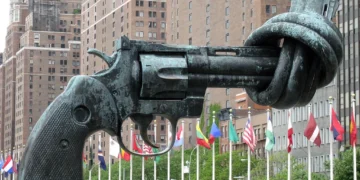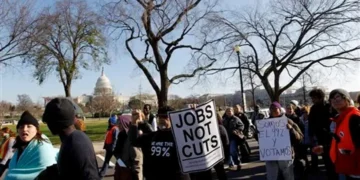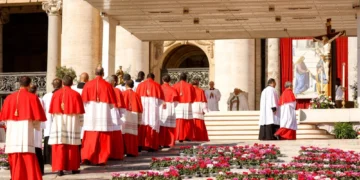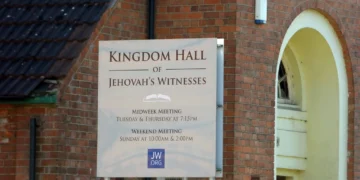In the land of the free and the home of the brave, where individual liberties and freedom of expression are cherished values, the existence of blasphemy laws in the United States appears paradoxical. Blasphemy laws, which seek to criminalize speech or acts deemed disrespectful towards religion, raise serious questions about their compatibility with the principles of liberty and secular democracy. While it is essential to foster respect for the faith of our fellow human beings, we must critically examine the potential consequences of such laws, leading us to question whether they truly have a place in a progressive and inclusive society like the United States.
The Veil of Respect
Respecting one another’s faith is crucial for maintaining a harmonious society, and it is only natural to expect individuals to be sensitive to matters of personal belief. However, the notion of respect is subjective and varies greatly among individuals. Enforcing blasphemy laws to protect religious sentiments may seem like a noble endeavor, but this approach threatens to stifle freedom of expression and dissent. By suppressing critical discussions or satire related to religion, we risk hindering the progress of our society and limiting the intellectual growth of its citizens.
What the Supporters Purport
While blasphemy laws exist in some countries and have been debated for various reasons, it is important to note that views on this topic can vary greatly. Here are some arguments that have been put forth in support of blasphemy laws:
Protection of religious feelings
Proponents argue that blasphemy laws provide a legal framework to protect the religious sentiments and beliefs of individuals and communities. They believe that such laws can prevent hate speech, discrimination, and the incitement of religious violence.
Preservation of public order
Supporters of blasphemy laws claim that these laws help maintain social cohesion and prevent potential conflicts or unrest between different religious groups. They argue that restrictions on blasphemous expressions can promote harmony and religious tolerance within society.
Upholding societal values
Some argue that blasphemy laws are necessary to protect the values and norms of a particular religious or cultural community. They believe that by criminalizing blasphemy, societies can affirm their commitment to their religious traditions and maintain the moral fabric of their communities.
Promotion of respect and religious harmony
Advocates assert that blasphemy laws can encourage respect for religious beliefs and foster interfaith harmony. They argue that by penalizing blasphemy, individuals may think twice before engaging in speech or actions that could be perceived as offensive or disrespectful to religious sentiments.
Controversy
It is important to note that these arguments are not without controversy, and critics of blasphemy laws argue that they can infringe on freedom of expression, stifle open debate, and be used to suppress dissent or target religious marginalized groups. The application of blasphemy laws can vary significantly across different countries and legal systems, and discussions around their pros and cons are ongoing.
The Threat to Freedom
Blasphemy laws restrict the freedom of those who wish to engage in critical dialogue or artistic expressions that may challenge religious beliefs. Freedom of speech forms the bedrock upon which democratic societies stand, enabling individuals to hold institutions accountable and foster social progress. By introducing legislation that penalizes blasphemy, we undermine the principles of free expression and enshrine religious beliefs as immune to criticism. This not only restricts the rights of non-believers but also inhibits religious individuals from exploring their faith critically.
The Slippery Slope towards Religious Intolerance
Implementing blasphemy laws opens the door to potential abuses and unintended consequences. While proponents argue that these laws help protect religious communities from discrimination, history reveals a darker truth. Blasphemy laws have often been exploited to discriminate against minority faiths and suppress dissenting voices. As the state holds the power to decide what qualifies as blasphemous, the risk of favoritism towards the majority religion or the suppression of minority opinions looms heavily. This can easily lead to the erosion of religious freedom and foster an environment of fear and intolerance.
Promoting Dialogue and Education
Achieving a society where all individuals respect one another’s faith requires a nuanced approach. Rather than enforcing laws that restrict expression, a more effective strategy lies in promoting open dialogue, fostering interfaith education, and encouraging critical thinking. By engaging in constructive conversations, we can address misunderstandings, bridge divides, and build a culture of mutual respect. Educating citizens about different belief systems nurtures an atmosphere of understanding, making it easier for individuals to coexist peacefully with diverse perspectives.
Blasphemy Laws Are Not the Answer
While the importance of respecting the faith of fellow individuals cannot be understated, implementing blasphemy laws is not the answer to achieving this goal. Such legislation threatens the very fabric of freedom and democracy, suppressing freedom of expression and inhibiting progress. Instead, the United States must focus on promoting dialogue, education, and mutual respect to pave the way for a society that celebrates diversity and allows for open discussion without fear. Only then can we foster an environment where faith and freedom can coexist harmoniously.















































































